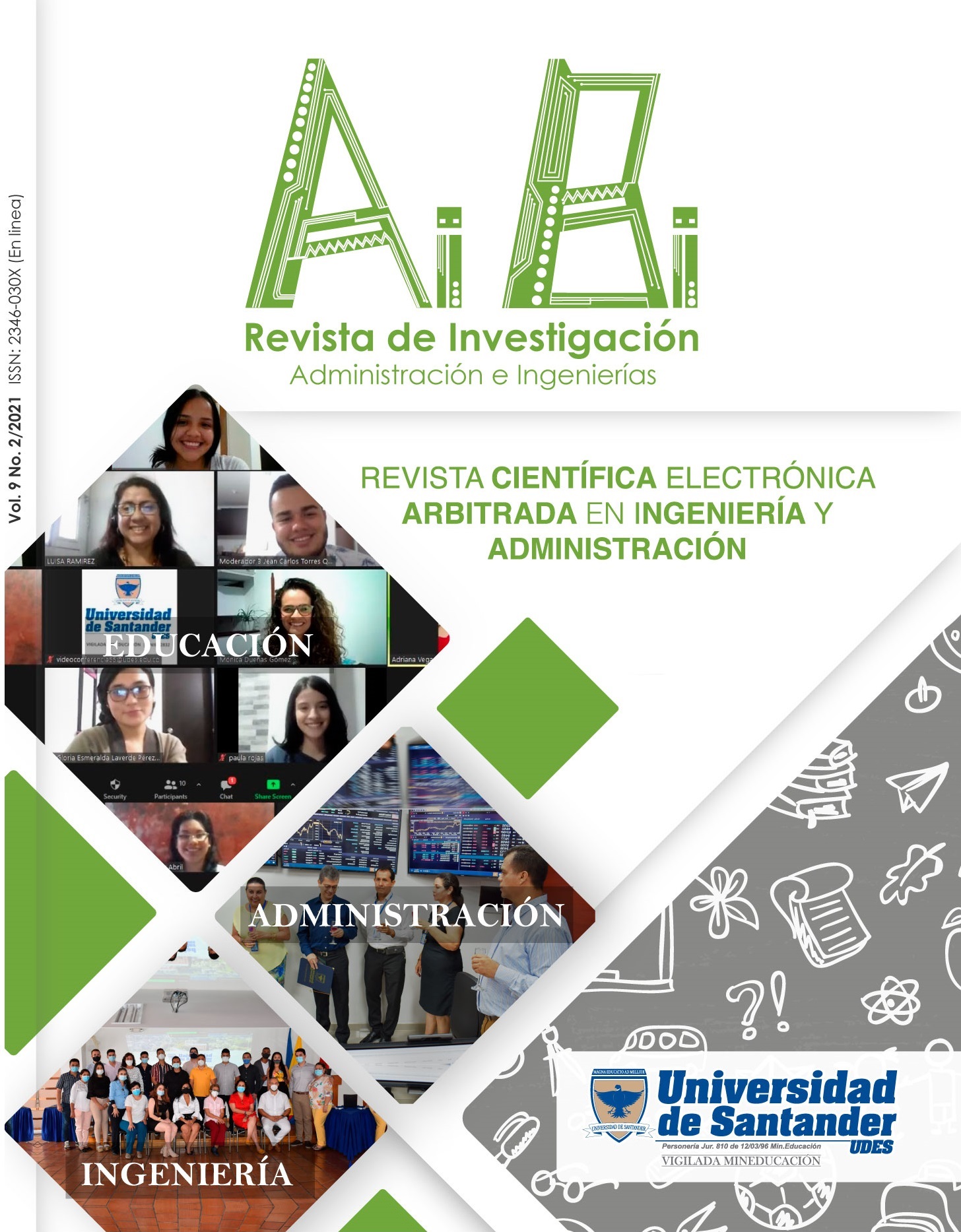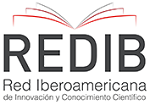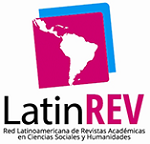Direction of university research: theoretical approach for its analysis
DOI:
https://doi.org/10.15649/2346030X.2397Keywords:
business administration, management, productivity, university, researchAbstract
The objective was to develop a theoretical approach to the direction of research in universities. It was a mixed study, with field design and bibliographic support, of an explanatory level, being the specific context the Universidad Nacional Experimental del Táchira, Venezuela. The analysis revealed an academic system determined by the absence of strategic macro-institutional direction of research, relying on expert power (researchers), achievements in productivity and competitiveness. A theoretical approach emerges that is constituted by three dimensions: the strategic nature of the direction, the overall vision of the institutional system, and the power relations among the actors of the system.
References
D. Madriz y A. Bravo, “Primero Yo, luego el método”, Venezuela: Fondo Editorial de la Universidad Nacional Experimental del Táchira, FEUNET, 2018.
G. Ramos, “Los fundamentos filosóficos de la educación como reconsideración crítica de la filosofía de la educación”. Revista Iberoamericana de Educación, vol. 36, n° 8, pp. 1-8, 2005. https://doi.org/10.35362/rie3682775.
A. Panda y R. Gupta, “Making academic research more relevant: A few suggestions”. IIMB Management Review, vol. 26, n° 3, pp. 156-169, 2014. https://doi.org/10.1016/j.iimb.2014.07.008.
A. Gollo, “La investigación. Necesidad vital”. Aibi Revista de Investigación, Administración e Ingeniería, vol. 6, n° 1, pp. 1-1, 2018. https://doi.org/10.15649/2346030X.478.
D. Kember, “A reconceptualisation of the research into university academics' conceptions of teaching”. Learning and Instruction, vol. 7, n° 3, pp. 255-275, 1997. https://doi.org/10.1016/S0959-4752(96)00028-X.
G. Dess y G. Lumpkin, “Dirección estratégica”, México: McGraw-Hill Interamericana, 2003.
S. Robbins, “Administración”, México: Pearson Educación, 2005.
C. Gutiérrez, A. Rozo y A. Flórez, “Direccionamiento estratégico, una estrategia organizacional con alto impacto en el desarrollo laboral”. Aibi Revista de Investigación, Administración e Ingeniería, vol. 7, n° 1, pp. 7-13, 2019. DOI: 10.15649/2346030X.544.
L. Rosell, “Financiamiento, gestión y nuevos escenarios para la producción de conocimientos”. Acta Odontológica Venezolana, vol. 44, n° 2, pp. 1-1, 2005.
Universidad Nacional Experimental del Táchira, “Reglamento de la Universidad Nacional Experimental del Táchira. (Gaceta Oficial Nº 4.622)”, San Cristóbal, 2008.
Universidad Nacional Experimental del Táchira, “Decanato de Investigación. Estadísticas internas”, San Cristóbal, 2018.
Ranking Web de Universidades, “Latinoamérica”, 2020.
Scimago Institutions Ranking, “Research Rank”, 2020.
S. Comboni & J. Juárez, “La educación superior en América Latina: perspectivas frente al siglo XXI”. Revista Política y Cultura, vol. 9, n° 1, pp. 7-27, 1997.
J. Casanoves, I. Küster & N. Vila, “¿Por qué las instituciones de educación superior deben apostar por la marca?”. Revista de Investigación Educativa, vol. 37, n° 1, pp. 111-127, 2019. http://dx.doi.org/10.6018/rie.37.1.291191.
A. Lafuente, P. Zorrilla y J. Forcada, “A review of higher education image and reputation literature: Knowledge gaps and a research agenda”. European Research on Management and Business Economics, vol. 24, n° 1, pp. 8-16, 2018. https://doi.org/10.1016/j.iedeen.2017.06.005.
J. Golden y F. Carstensen, “Academic research productivity, department size and organization: Further results, comment”. Economics of Education Review, vol. 11, n° 2, pp. 153-160, 1992. https://doi.org/10.1016/0272-7757(92)90005-N.
C. Araque, “Los retos del mundo globalizado, el docente investigador universitario y su práctica pedagógica”. Aibi Revista de Investigación, Administración e Ingeniería, vol. 7, n° 2, pp.50-56, 2019. DOI: 10.15649/2346030X.577
T. Ramírez y A. Salcedo, “Inversión y producción científica en Venezuela ¿una relación inversamente proporcional?”. Revista de Pedagogía, vol. 37, n°. 101, pp. 147-174, 2016.
M. Kohtamäki, R. Rabetino y K. Möller, “Alliance capabilities: A systematic review and future research directions. Industrial Marketing Management”, vol. 68, n° 1, pp. 188-201, 2018. https://doi.org/10.1016/j.indmarman.2017.10.014.
T. Fontaines, “Factores condicionantes de la productividad del científico venezolano: una mirada desde el discurso de los investigadores”. Revista Hallazgos, vol. 9, n° 18, pp. 15-32, 2012. https://doi.org/10.15332/s1794-3841.2012.0018.01.
M. Alruiz, Decanato de Investigación, 25 años, 1975/2000, Venezuela: Universidad Nacional Experimental del Táchira, 2000.
G. Castañeda y R. Castañeda, “Gerencia de investigación: criterios gerenciales aplicados a la investigación”. Revista Científica Ciencias Humanas, vol. 2, n° 006, pp. 18-47, 2007.
S. González, “La cultura organizacional en la universidad pública venezolana. Caso: Universidad Nacional Experimental del Táchira UNET”, tesis doctoral, Universidad Santa María, Venezuela, 2007.
A. Rozo, A. Flórez y C. Gutiérrez, “Liderazgo organizacional como elemento clave para la dirección estratégica”. Aibi Revista de Investigación, Administración e Ingeniería, vol. 7, n° 2, pp. 62-67, 2019. DOI: 10.15649/2346030X.543.
P. Giuri, F. Munari, A. Scandura and L. Toschi, “The strategic orientation of universities in knowledge transfer activities”. Technological Forecasting and Social Change, vol. 138, n° 1, pp. 261-278, 2018. DOI: 10.1016/j.techfore.2018.09.030.
G. Ábramo, A. Ciriaco and G. Murgia, “The relationship among research productivity, research collaboration, and their determinants”. Journal of Informetrics, vol. 11, n° 4, pp. 1016-1030, 2017. https://doi.org/10.1016/j.joi.2017.09.007.
M. Martínez, “Epistemología y metodología cualitativa en las ciencias sociales”, México: Trillas, 2008.
B. Johnson, A. Onwuegbuzie and L. Turner, “Toward a definition of mixed methods research”. Journal of Mixed Methods Research, vol. 1, n° 2, pp. 112-133, 2007. DOI: 10.1177/1558689806298224.
A. Campos, “Métodos mixtos de investigación. Integración de la investigación cuantitativa y la investigación cualitativa”, Bogotá: Cooperativa Editorial Magisterio, 2009.
R. Hernández, C. Fernández y P. Baptista, “Metodología de la investigación”, México: McGraw-Hill, 2010.
A. Strauss y J. Corbin, “Bases de la investigación cualitativa. Técnicas y procedimientos para desarrollar la teoría fundamentada”, Antioquia: Universidad de Antioquia, 2012.
F. Mojica, “La construcción del futuro”, Bogotá: Universidad Externado de Colombia /Convenio Andrés Bello, 2005.
J. Hurtado, “Metodología de la investigación holística”, Venezuela: Fundación Sypal, 2000.
A. Tashakkori, “Are we there yet?. The state of the mixed methods community”. Journal of Mixed Methods Research, vol. 3, n° 4, pp. 287-291, 2009. DOI: 10.1177/1558689809346151.
Ch. Teddlie y F. Yu, “Mixed methods sampling: A typology with examples”. Journal of Mixed Methods Research, vol. 1, n° 1, pp. 77-100, 2007. https://doi.org/10.1177/1558689806292430.
R. Greene y J. Elffers, “Las 48 leyes del poder”, Buenos Aires: Atlántida, 1998.
H. Mintzberg y J. Quinn, “El proceso estratégico”, México: Prentice Hall Hispanoamericana, 1984.
K. Patwardhan, B. Prasad, A. Aftab, V. Raghunath and S. Savrikar, “Research orientation in Ayurveda educational institutions: Challenges and the way forward”. Journal of Ayurveda and Integrative Medicine, vol. 10, n° 1, pp. 45-49, 2019. DOI: 10.1016/j.jaim.2018.12.001
J. Xu, Q. Hou, Ch. Niu, Y. Wang y Y. Xie, “Process optimization of the University-Industry-Research collaborative innovation from the perspective of knowledge management”. Cognitive Systems Research, vol. 52, n° 1, pp. 995-1003, 2018. https://doi.org/10.1016/j.cogsys.2018.09.020.
M. Rodríguez, R. Ordóñez y A. López, “La dirección escolar: Liderazgo pedagógico y mejora escolar”. Revista de Investigación Educativa, vol. 38, n° 1, pp. 275-292, 2020. http://dx.doi.org/10.6018/rie.364581.
R. Daigle y V. Arnold, “An analysis of the research productivity of AIS faculty”. International Journal of Accounting Information Systems, vol. 1, n° 2, pp. 106-122, 2000. https://doi.org/10.1016/S1467-0895(00)00007-5.
E. Torres y L. Pérez, “Factores que inciden en la productividad investigativa”. Revista INNOVA ITFIP, vol. 1, n° 1, pp. 105-111, 2017.
Published
How to Cite
Issue
Section
Altmetrics
Downloads
License
The journal offers open access under a Creative Commons Attibution License

This work is under license Creative Commons Attribution (CC BY 4.0).











